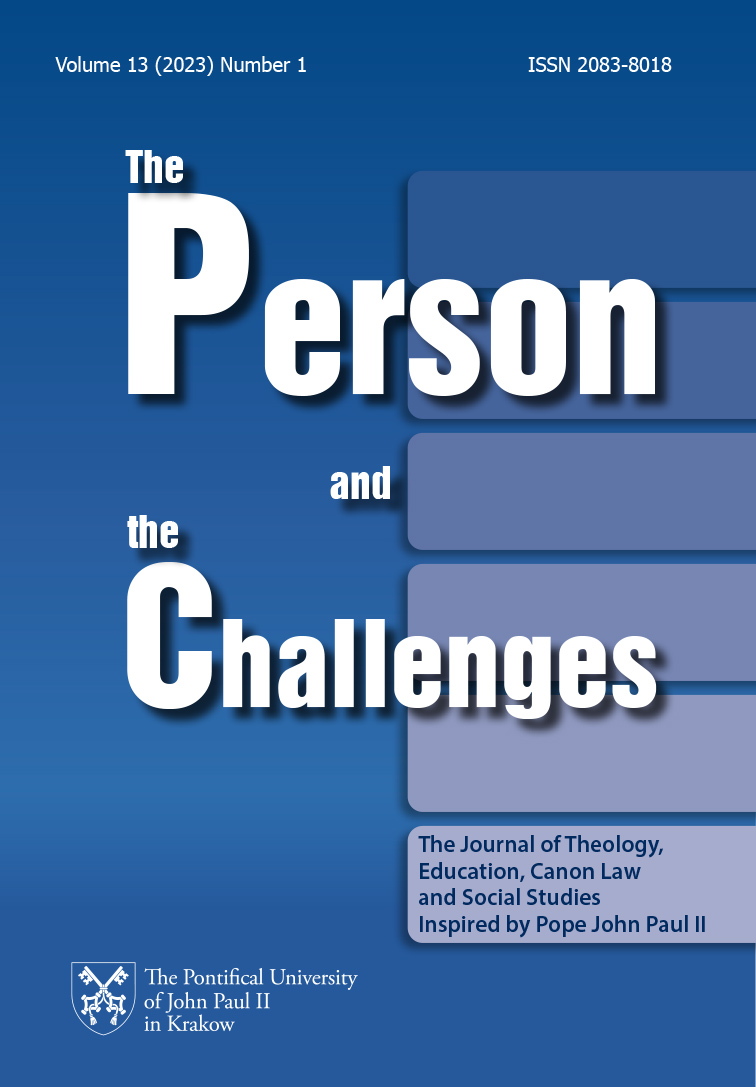Mixed Marriages of Poles in England and Wales, 2007–2020: A Preliminary Sociological Analysis
DOI:
https://doi.org/10.15633/pch.13104Keywords:
Mixed marriages, binational marriages, cross-cultural marriages, Poles in England and Wales, Polish migrantsAbstract
The aim of the article is to present the scale and characteristics of the phenomenon of church marriages by Poles who migrated to England and Wales. The phenomenon of heterogamous relationships has grown over the last several decades due to factors such as the expansion of the community of European Union member states, globalization processes, and the resulting diversity of the population of migrants. The article is focused mainly on religious mixed marriages. The empirical material consisted of data from the records of the largest organization of the Polish community in Britain. The authors analysed the data of 25,530 marriages of Poles living in England and Wales, registered between 2007 and 2020, including 2,922 mixed religions marriages.
References
Aarvik S., ‘Spiritualized Islam’: Reconfigurations of Islamic Dogma Among Young Non-Organized Muslims in Norway, “Islam and Christian–Muslim Relations” 32/1 (2021), pp. 81–96, doi: https://doi.org/10.1080/09596410.2020.1846447.
Abbas M. S., ‘I grew a beard and my dad flipped out!’ Co-option of British Muslim Parents in Countering ‘Extremism’ Within Their Families in Bradford and Leeds, “Journal of Ethnic and Migration Studies” 45/9 (2019), pp. 1458–1476, doi: 10.1080/1369183X.2018.1466694.
Adamowicz L., Wybrane problemy katolickiego prawa małżeńskiego w kontekście emigracji w wielokulturowej Europie, “Roczniki Nauk Prawnych” 19/2 (2009), pp. 151–163, https://ojs.tnkul.pl/index.php/rnp/article/download/7757/7709/ (01.03.2022).
Baniak J., Małżeństwo i rozwody w świadomości młodzieży polskiej przełomu XX i XXI wieku w świetle badań socjologicznych, “Studia Koszalińsko-Kołobrzeskie” 28 (2021), pp. 287–310, doi: 10.18276/SKK.2021.28-14.
Bartczak A., Konwalidacja małżeństwa kanonicznego, “Acta Universitatis Lodziensis. Folia Iuridica” 81 (2017), pp. 5–15, doi: http://dx.doi.org/10.18778/0208-6069.81.01.
Biedroń M., Problemy małżeństw binacjonalnych. Analiza postów na forach internetowych. “Wychowanie w Rodzinie” 15/1 (2017), pp. 93–115, doi: 10.23734/wwr20171.093.115.
Boccafola K. E., Invalid Convalidation: A Legitimate Autonomous Ground of Marriage Nullity, “Jurist” 74 (2014), pp. 193–213, doi: https://muse.jhu.edu/article/588060.
Boonphao P., Canonical Considerations in Pastoral Care of Persons in Marriages Between Roman Catholics and Buddhists in Thailand, Ottawa: Saint Paul University 2020, http://hdl.handle.net/10393/41444 (01.03.2022).
Borek D., Przestępstwa przeciwko wierze w normach “De Delictis Revervatis” z 2010 roku, “Prawo Kanoniczne” 57/3 (2014), pp. 105–126.
Czykwin E., Małżeństwa prawosławno-katolickie w perspektywie badawczej, in: M. Bieńkowska, W. Żelazny (eds.), Pogranicza. Księga Jubileuszowa profesora Andrzeja Sadowskiego, Białystok: Wydawnictwo Uniwersytetu w Białymstoku 2015, pp. 245–263.
Habermas J., Glauben und Wissen: Rede zum Friedenspreis des Deutschen Buchhandels 2001, Frankfurt/M.: Suhrkamp Verlag 2016.
Jodłowska-Herudzińska M., Kwestie doboru małżeńskiego w międzykulturowych małżeństwach mieszanych, “Roczniki Socjologii Rodziny” 14 (2002), pp. 173–189.
Kaczmarczyk R., System aksjologiczny muzułmanów – wyzwanie czy element wspólnej kultury Europy?, “Rocznik Europeistyczny” 3, pp. 63–75, doi: 10.19195/2450-274X.3.6.
Kashyap R., Lewis V. A., British Muslim Youth and Religious Fundamentalism: A quantitative Investigation, “Ethnic and Racial Studies” 36/12 (2013), pp. 2117–2140, doi: https://doi.org/10.1080/01419870.2012.672761.
Lenart-Kłoś K., Stwierdzenie nieważności małżeństwa. Próba ujęcia zjawiska na przykładzie diecezji lubelskiej, in: A. Zadroga, K. Sawicki (eds.), Człowiek – Społeczeństwo – Gospodarka. Perspektywa odpowiedzialności społecznej, Lublin: Wydawnictwo KUL 2013, pp. 125–142.
Majer P., Adamowicz L., Praktyczny komentarz do dekretu ogólnego Konferencji Episkopatu Polski o przeprowadzaniu rozmów kanoniczno-duszpasterskich z narzeczonymi przed zawarciem małżeństwa kanonicznego z dnia 08 paździdernika 2019 roku, Sandomierz: Wydawnictwo Diecezjalne i Drukarnia w Sandomierzu 2021.
Nolte I., ‘At least I am married’: Muslim-Christian Marriage and Gender in Southwest Nigeria, “Social Anthropology” 28/2 (2020), pp. 434–450, doi: https://doi.org/10.1111/1469-8676.12765.
Obirek S., Religia w kontekście postsekularnym, in: U. Kurczewska, M. Głowania, W. Ogrodnik, D. Wasilewski (eds.), Co się dzieje z polskim społeczeństwem? Księga jubileuszowa dedykowana Profesorowi Ireneuszowi Krzemińskiemu, Warszawa: Wydawnictwo Uniwersytetu Warszawskiego 2019, pp. 171–185.
Pastwa A., Forma kanoniczna małżeństw mieszanych w świetle motu proprio „Omnium in mentem” i nowszych uregulowań Stolicy Apostolskiej, “Studia Oecumenica” 11 (2011), pp. 151–171, doi: 10.25167/so.3229.
Stala J., New Challenges for the Catholic Vision of the Vocation of Women and Men, “The Person and the Challenges” 9/2 (2019), pp. 135–148, doi: http://dx.doi.org/10.15633/pch.3455.
Van Niekerk J., Verkuyten M., Interfaith Marriage Attitudes in Muslim Majority Countries: A Multilevel Approach, “The International Journal for the Psychology of Religion” 28/4 (2018), pp. 257–270, doi: https://doi.org/10.1080/10508619.2018.1517015.
Waters I. B., The Catholic Church and Mixed Marriage, in: A. W. Abe (ed.), Mixed Marriages: Catholic/Non-Catholic Marriages in Australia, Melbourne: Ringwood Vic. David Lovell 2005, pp. 101–106.
Downloads
Published
Issue
Section
License

This work is licensed under a Creative Commons Attribution 4.0 International License.
Authors who publish with this journal agree to the following terms:
- Authors retain the copyright and full publishing rights without restrictions, and grant the journal right of first publication with the work simultaneously licensed under a Creative Commons Attribution 4.0 International License that allows others to share the work with an acknowledgement of the work's authorship and initial publication in this journal.
- Authors are able to enter into separate, additional contractual arrangements for the non-exclusive distribution of the journal's published version of the work (e.g., post it to an institutional repository or publish it in a book), with an acknowledgement of its initial publication in this journal.
- Authors are permitted and encouraged to post their work online (e.g., in institutional repositories or on their website) prior to and during the submission process, as it can lead to productive exchanges, as well as earlier and greater citation of published work (See The Effect of Open Access).

